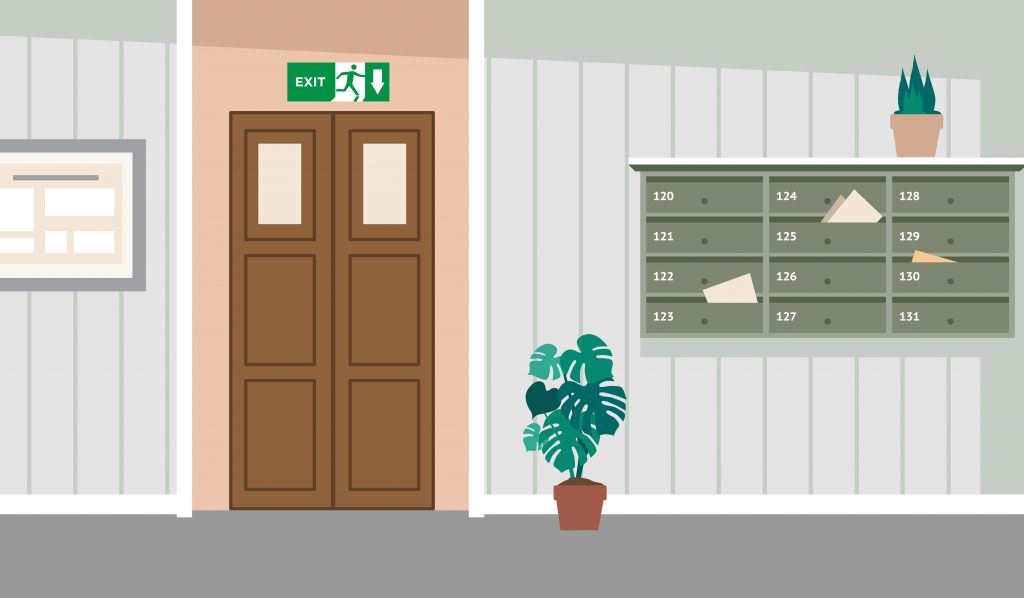Flats Fire Risk Assessments Guide
Fire safety continues to be a hot topic in the world of domestic properties, especially when it comes to flats in high-rise buildings. We’ve discussed recently some of the new regulations coming into force in 2023 that have come about directly as a result of the Grenfell Tower disaster, but it’s worth looking more closely at the subject of fire risk assessments in flats and apartments more generally.
It’s important that all landlords, tenants and leaseholders understand their rights, duties and legal positions when it comes to this most crucial of subjects, so we’ve put together this brief fire risk assessment guide for flats and apartments.

What is a fire risk assessment?
A fire risk assessment is a legal requirement for commercial premises (including HMOs, blocks of flats and similar residential properties) under the Regulatory Reform (Fire Safety) Order 2005. It is designed to ensure such buildings are regularly assessed to see that everything is being done to keep all occupants, residents, visitors or employees safe in the event of a fire.
All fire risk assessments should incorporate the following five steps:
- Identifying fire risks and hazards
- Identifying people at risk
- Evaluating, removing and/or reducing those risks
- Recording findings and creating an emergency plan
- Regularly reviewing and updating the assessment
You can read more about the five steps of fire risk assessments here.
Do all flats need a fire risk assessment?
Nearly all flats and apartments, whether purpose built or converted from a house, will need a fire risk assessment, as long as there are common areas (such as staircases, entrance areas and doors).
Flats which have their own front doors and do not share common areas will probably not need a fire risk assessment, as they will essentially be treated like any other domestic property.
Who is responsible for carrying out the fire risk assessment?
The freeholder, landlord, property manager or another nominated responsible person should arrange the fire risk assessment. It is not the responsibility of tenants and leaseholders to organise fire risk assessments on the buildings in which they live.
What sort of things would a flat fire risk assessment include?
What a fire risk assessment in a block of flats covers will depend on the structure and layout of the building in question. Common areas will be assessed for fire hazards and, where necessary, the installation of fire alarms, while fire doors and escape routes should also be reviewed.
The fire risk assessment will only assess common areas – it is up to each individual resident to ensure that their own flat is fire safe (although landlords are responsible for providing smoke alarms).
If during the assessment it is identified that the structure of the building represents a particular risk, it may be necessary to open up portions of the building’s construction for further examination – this is known as a ‘destructive inspection’.
Can I see the fire risk assessment for my building?
As a tenant, you have a right to see a fire risk assessment if you want to. If you have any reason to believe that one has not been carried out, you should first ask your landlord or managing agent to ensure one is carried out as soon as possible.
If your concerns are not being addressed, then as a last resort you can contact your local fire brigade (although you should never use the 999 emergency number to do this).
High-rise buildings with cladding
As of early 2023, the external walls of high-rise buildings form part of the Fire Safety Order, and therefore need to be examined during a fire risk assessment. This means that unsafe cladding can be identified and removed. We’ve discussed the subject of cladding in more depth in this recent article.
How do you carry out a fire risk assessment?
A fire risk assessment should be carried out by a ‘competent person’. While not a legal requirement, this would normally be a trained professional who has the knowledge and experience to ensure that the job is done effectively.
For all your fire risk assessment needs, you can always talk to the team at Scutum London. We have all the necessary accreditations and training to carry out effective fire risk assessments that will ensure that you are fully compliant with fire safety legislation, and that your property and your tenants are as safe as possible.
Get in touch with us now to find out more or to book a fire risk assessment on your residential premises. We operate across London, Surrey and the South East of England.
Request a Callback
Just fill in your details below and we'll get back to you as soon as we can!

About Scutum London
Scutum London is a leading expert in fire safety and security solutions for businesses and organisations located across South East England, including London and Surrey.
From fire alarms, fire extinguishers and fire risk assessments to access control, CCTV and intruder alarm systems – and a lot more besides – we offer a comprehensive range of products and services designed to keep you, your business and your staff and visitors safe.
With decades of industry experience to call on, we’re proud to hold accreditations from leading trade associations and bodies such as British Approvals for Fire Equipment (BAFE), the British Fire Consortium, the Fire Industry Association (FIA) and Security Systems and Alarms Inspection Board (SSAIB).
If you’d like to find out more about Scutum London, get in touch with our friendly team or explore our products and services on our site.

